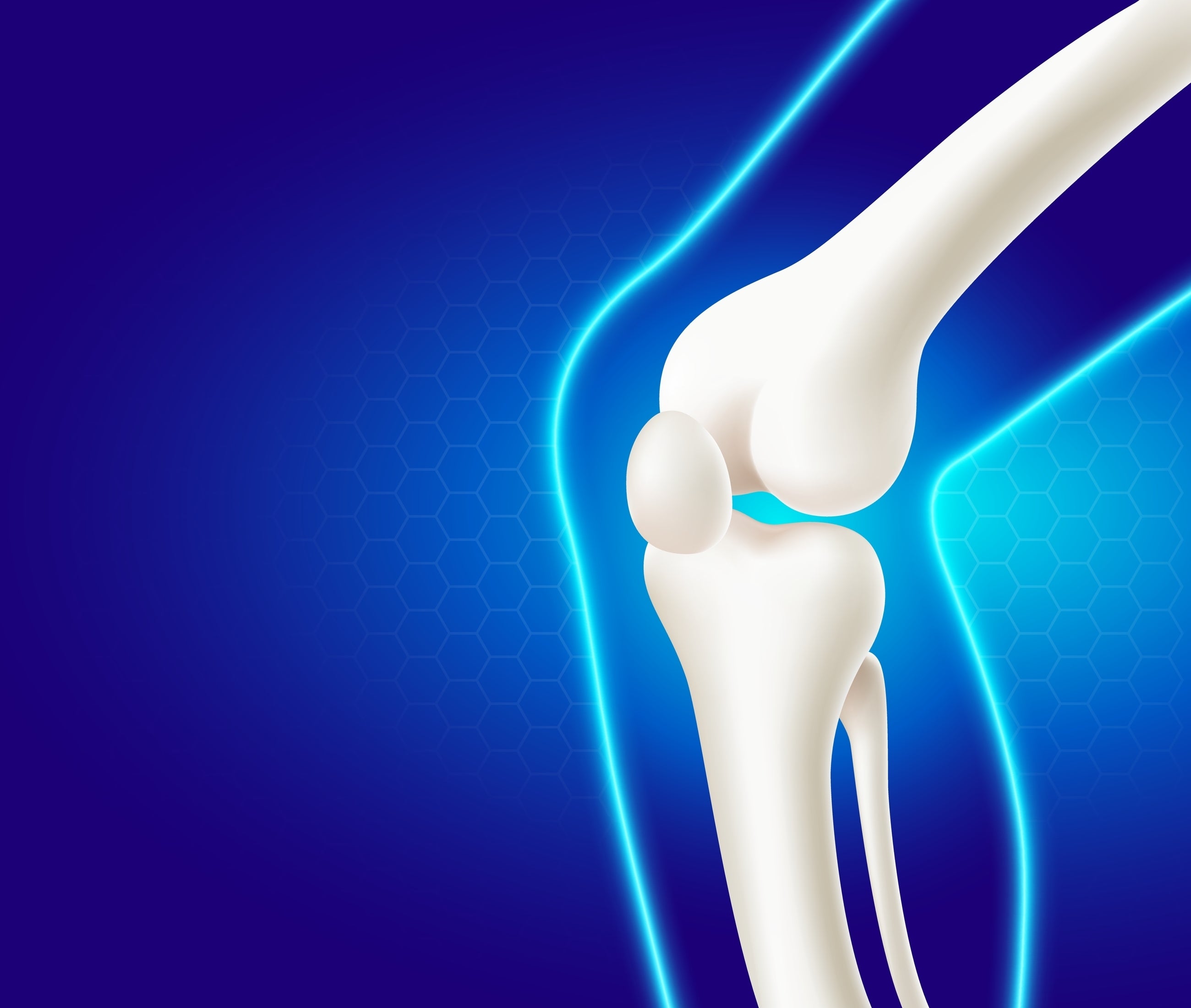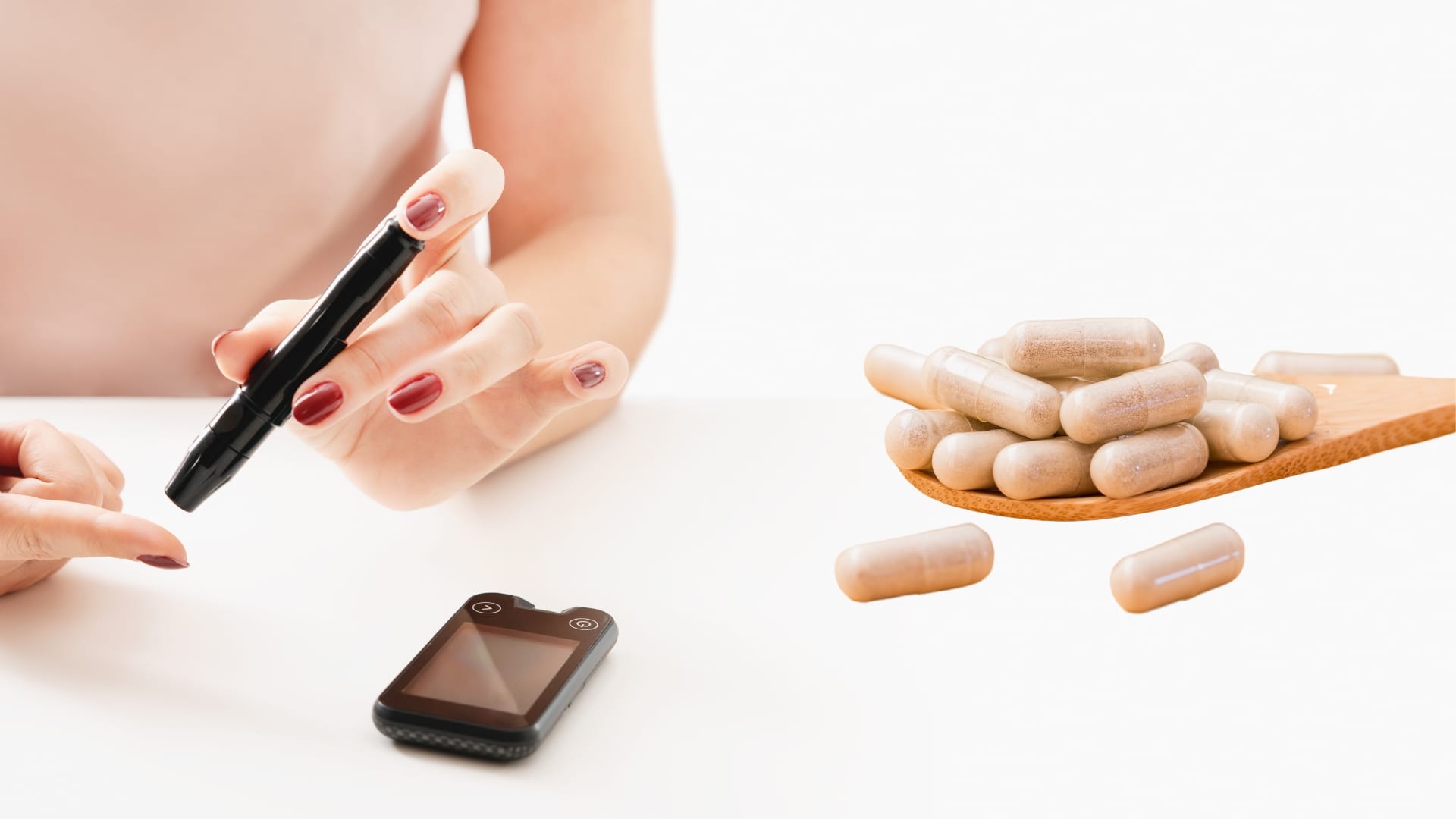What Are the Best Natural Supplements for High Blood Sugar?
Those suffering from high blood sugar, insulin resistance, diabetes, and/or other forms of metabolic dysregulation but hoping to avoid conventional prescription drugs may be in search of herbal supplements to reduce blood sugar.
There are several natural alternatives to Metformin, which is one of the most popular and widely prescribed diabetes drugs on the market - but which of these natural alternatives/supplements to lower blood sugar is most effective? Read below to find out more…
Curcumin
Curcumin is the primary active ingredient in turmeric and is responsible for the majority of the spice’s health benefits. A 2021 review of the existing literature on the effects of curcumin on blood glucose management found that curcumin may reduce fasting blood sugar levels as well as body mass index. The authors of this review theorize that curcumin is an effective anti-diabetic supplement because it suppresses oxidative stress and inflammation.
Red Yeast Rice
Red yeast rice is a type of fermented rice that has been used in traditional Chinese medicine to treat a number of conditions over the years. It has been thought to lower cholesterol since it contains a compound called monacolin K, which is also found in some cholesterol medications. In addition to its effects on cholesterol, red yeast rice supplements may also reduce blood sugar and blood pressure levels while increasing insulin sensitivity in those with metabolic syndrome.
However, compared to some other natural supplements taken to reduce blood sugar, red yeast rice is a higher-risk option. It may cause muscle issues, liver toxicity, and allergic reactions. In addition, if fermented incorrectly, red yeast rice may contain citrinin (a toxin produced by some mold species), which can cause kidney failure and may impact human gene expression.
Garlic
A 2017 meta-analysis of randomized controlled trials to investigate the effects of garlic supplements on type 2 diabetes found that the supplement may lower blood glucose and cholesterol levels. Garlic—whether in supplement form, as garlic powder, or in its whole food form—is not only found to be delicious but may also be a good option for those seeking to lower their blood glucose levels.
Berberine
Berberine is an alkaloid compound that has been used to treat a variety of symptoms for thousands of years in both Ayurvedic and traditional Chinese medicine. There are many plants that naturally contain this compound; common berberine sources include European barberry, goldenseal, goldthread, Oregon grape, tree turmeric, and phellodendron.
Of all the natural supplements for diabetes listed so far, berberine has the most research to back up its efficacy. In fact, berberine may be as powerful a treatment for metabolic disease as some prescription diabetes medications.
Berberine Supplement Benefits
In addition to being used to lower blood sugar and cholesterol levels, the most notable and evidence-based benefits of berberine supplements include the following:
May Assist in Weight Loss
One of the most notable berberine health benefits is the fact that it may help with weight loss. One 12-week study of a group of people with obesity found that taking berberine three times a day led to an average of approximately five pounds of weight loss and of 3.6 percent of overall body fat loss. Likewise, a review of 12 studies on the subject found that berberine supplementation may have led to moderate but significant decreases in body weight, body mass index, and waist circumference. Nevertheless, more research is required to confirm that berberine is a truly effective supplement for weight loss.
May Reduce the Risk of Heart Disease
A review of 16 randomized clinical trials found that berberine may lower measurable risk factors for heart disease, including total cholesterol, LDL (“bad”) cholesterol, and triglycerides. It’s also been found to increase levels of HDL (“good”) cholesterol. These positive health changes that have been listed are also linked to a reduced risk of heart disease.
May Provide Antioxidative Effects
Several in vitro (i.e., test-tube) and animal studies have found that berberine may have antioxidant properties, meaning that it can neutralize free radicals and minimize oxidative stress. This is notable since, over time, oxidative stress may contribute to the development of chronic illnesses and diseases, such as cancer, Alzheimer’s disease, and cardiovascular disease.
What Medications Should Not Be Taken with Berberine?
Berberine has the potential to interact with several prescription medications. Its most serious interaction is with the immunosuppressive drug cyclosporine, most commonly used to treat organ rejection following a transplant; berberine is thought to slow down the body’s breakdown of cyclosporine, amplifying the drug’s effects and side effects.
For further guidance on berberine’s interactions with medications, as well as other herbs and supplements, refer to the listing for berberine in the official MedlinePlus database.
Common Side Effects of Berberine
While berberine is generally safe for most, it may cause some (usually minor) side effects in others. Berberine’s most common side effects have been found to be primarily digestive, such as diarrhea, constipation, bloating, gas, and upset stomach.
Notable Berberine Studies
A recent systematic review of 46 randomized controlled trials to investigate the effects of berberine on type 2 diabetes found that berberine may reduce insulin resistance, blood sugar levels, and inflammation, while improving lipid metabolism (including the lowering of cholesterol levels).
Another study found that berberine lowered the diabetics’ fasting blood sugar by an average of 20 percent and their hemoglobin A1C (which measures average blood glucose levels over the last three months) by 12 percent.
The latest research on berberine suggests that this compound works to improve metabolic and overall health in a number of distinct ways. These may include decreasing insulin resistance, increasing the body’s breakdown of sugars in the cells, decreasing the liver’s production of sugar, slowing the gut’s breakdown of carbs, and increasing the number of beneficial bacteria in the gut microbiome. Together, this combination of effects may result in improved metabolic health and can set berberine apart as one of the best natural diabetes supplements.
Best Berberine Supplements
There are many diabetes supplements on the market that contain berberine. However, the best supplement for blood sugar management is InnerThera Berberine Balance, which contains not only berberine, but also chromium and biotin to provide the maximum support for a healthy insulin response.
InnerThera Berberine Balance
InnerThera Berberine Balance contains a patented form of berberine known as Berbevis® Berberine Phytosome™. This extract is ten times as bioavailable as conventional berberine extracts, which means that the body receives significantly more benefit from this form of berberine. Blended with pea protein and grapeseed extract, the berberine in Berbevis® is easily absorbed while causing minimal digestive upset.
Berberine Balance also contains two other ingredients that work synergistically with berberine to provide blood sugar support: chromium and biotin. The chromium glycinate found in Berberine Balance is a high-quality, chelated form in which the mineral is bound to the amino acid glycine, improving its absorption in the body. Meanwhile, the supplement also contains 10,000% of the daily requirement for biotin (also known as vitamin B7), a water-soluble B vitamin. Biotin is an essential part of the body’s process of metabolizing carbs, fats, and proteins into energy.
Note: Although the ingredients in Berberine Balance are generally considered to be safe for most people, make sure to discuss your plans with a physician before incorporating Berberine Balance into your supplement routine. Everyone’s medical situation is different, and only a medical professional has the expertise to avoid any possible interactions with existing supplements/prescriptions and ensure that a supplement is a good fit for your needs.







